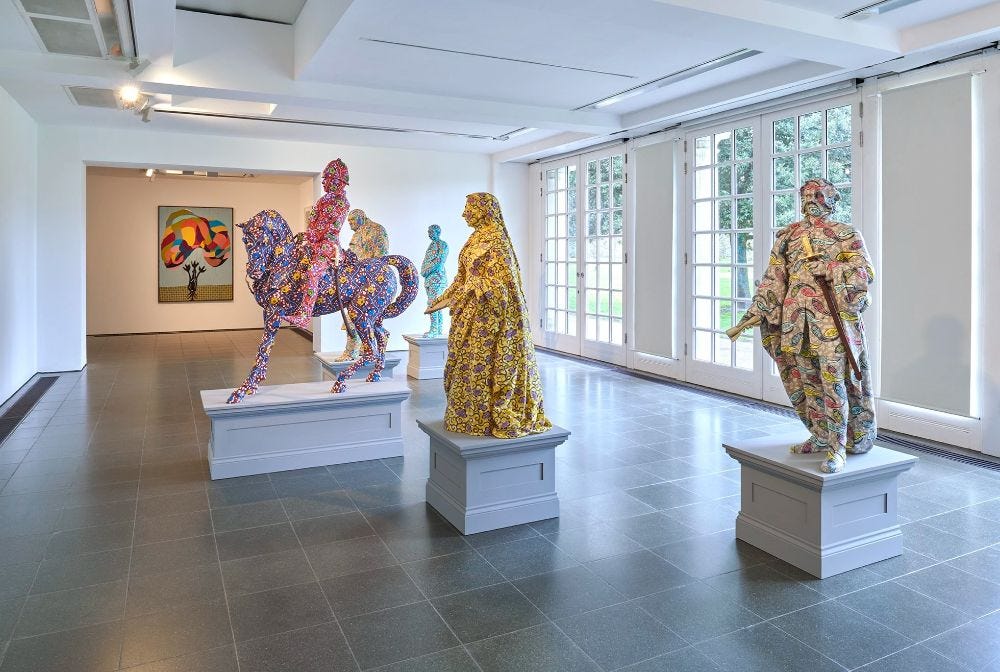Greetings
Every month, we spend hours trawling the internet for news on African design, art, culture, etc for this newsletter. It needs me to be plugged into the multitude of projects, activities and initiatives in a broad range of sectors and topics. It always warms my heart to find so much going on, the reality is that there is often much that we miss so we do need your help. Should you have stories to share and stories you feel we should highlight on the Medium platform, please do not hesitate to email me. The reality is that we cannot do this without you.
The power of diversity, in whatever area, is that it provides for different perspectives and approaches. Or, in the words of American designer, Tim Allen, "Our greatest asset when we design is human diversity." Every culture has something to add to the whole. Architecture in Morocco is a great example of this: Learning from the ancients Moroccan architecture forges new identity.
A running joke with some friends is that, no matter what city you visit across Europe, you will find the 'Africa shop' with goods from various countries from across the continent. And when it comes to African cuisine, there is often a restaurant of sorts in some corner, providing the dishes we love from home in the way that they are traditionally prepared. But, there is another dimension to this that hasn't received as much attention, on the continent and internationally. African chefs are constantly innovating by approaching cuisine with a contemporary eye (and palate) while retaining a connection to the past. As a result, increasingly, Africans are establishing high-end African dining in cities like London and Paris. Here are the six African chefs with Michelin rated restaurants.
While male chefs have dominated the industry for decades, there are an increased number of female chefs making their mark across the continent and globally, as detailed in African Female Chefs at the forefront of African cuisine.
And women chefs are showing up in establishments beyond the continent with Chef Eugénie Béziat recently appointed to head up the Ritz Hotel's Espadon restaurant in Paris, which was established by legendary French culinary pioneer, chef, restauranteur and culinary writer, Auguste Escoffier. Chef Béziat, who has central African and European heritage, is influenced by exposure to cuisine from the host of countries from across the continent that she grew up in. Ritz Paris Welcomes Its First-Ever Female Chef
While the sheer volume of music available on the various streaming platforms can be overwhelming, with the playlist, they allow any and everyone the opportunity to curate music in interesting ways, to celebrate, document moments, however big or small. For example, with 2024 marking 30 years since the first democratic elections in South Africa, Apple Music collaborated with icons, celebrities and public personalities with a series of 30 Years of Freedom playlists.
I love finding new playlists and a recent discovery for me is the collaboration between Africa Is A Country and AfroWave Echoes, the first of which is Femme Fatale, which "celebrates the impactful contributions of African women to the music scene. Featuring artists from Brenda Fassie to Amaraae, in musical hubs like Abidjan and Cape Town, we are thrilled to present this compilation of female/femme artists, Djs, producers and songwriters who are breaking ceilings and forging paths for future generations."
Photo: © Jo Underhill. Courtesy Yinka Shonibare CBE and Serpentine
At the heart of Yinka Shonibare's work is a consistent interrogation of colonisation, race, class and cultural identity. For his first London exhibition in 20 years called Suspended States, Shonibare "sets out to interrogate how systems of power affect sites of refuge, debates on public statues, the ecological impact of colonisation and more."
Having read two reviews of the show, namely Yinka Shonibare CBE: Suspend States review - gorgeously recognisable, but is that enough? and Yinka Shonibare CBE: Suspended States - a 'stunning' show, I was struck by how both question what they call the repetition in his work. In a subtle way, it feels like we are being told to 'get over' these issues, beautiful and engaging as the work is.
The lens through which we view the world shapes the narratives, what we think, what we feel, etc. The photographer does that a bit more directly with where they point their lens. The burden on African photographers is, in my opinion, is even greater because they are changing a narrative around Africa that has been shaped by others. Initiatives like the Contemporary African Photography Prize contribute to spotlighting African photographers who are influencing how the world looks at Africa. Contemporary African Photography prize winners 2023. And books like Ekow Eshun's Africa State of Mind, which traces Africa's urban transformation through photography.
If you enjoyed this edition of the Ogojiii newsletter, please do share with others who you feel would enjoy it as well. We look forward to your comments, input and contributions.
Till next time.
Kojo







